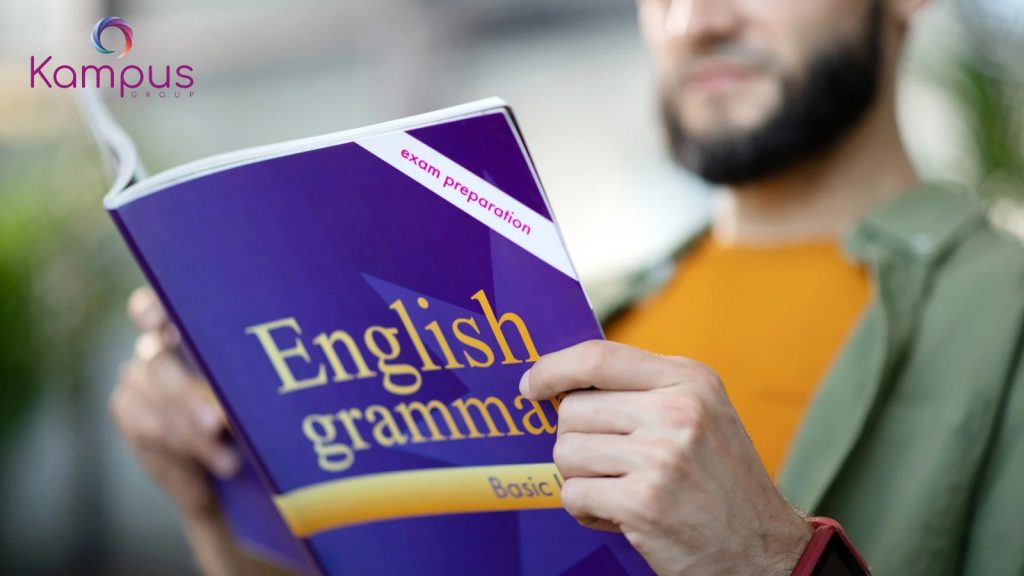Have you ever come across a word in English that seems to contradict itself? That’s not a trick—it’s a real phenomenon! These unique words are called contronyms (also known as auto-antonyms or Janus words). A contronym is a single word that carries two opposing meanings depending on context.
Although they’re quite rare, contronyms appear in everyday English, and understanding them can help you sound more fluent and natural. They’re also incredibly useful for exams like IELTS, where showing your vocabulary depth is important.
What Is a Contronym?
A contronym is a word that has two contradictory meanings. For example, the word “sanction” can mean both to approve and to penalise. These double meanings can be confusing—even for native speakers—but mastering them helps you use English more skillfully.
Contronyms:
- Are spelled the same
- Are pronounced the same
- But have opposite meanings based on how they’re used
Understanding how to use contronyms in context is a sign of advanced English skills.
Why Should You Learn Contronyms?
If you’re preparing for the IELTS exam, being able to use and recognize contronyms offers several advantages:
- It shows your understanding of English in a more complex and nuanced way.
- It strengthens your vocabulary range and boosts your confidence in speaking and writing.
- It helps you avoid unintentional mistakes, like using a word to mean the opposite of what you intended.
Common Contronyms with Opposite Meanings
Here are some popular contronyms and how their meanings differ depending on usage:
Apology
One meaning is a statement of regret: “She sent an apology for missing the meeting.”
The other is a defence or justification: “He gave a weak apology for his behaviour.”
Bolt
It can mean to secure something: “Bolt the door before you leave.”
Or it can mean to flee: “The rabbit bolted from the field.”
Bound
This word might mean heading towards something: “She’s bound for Paris.”
Or it might mean being restrained: “His hands were bound with rope.”
Buckle
You might use it to mean fastening: “Buckle your seatbelt.”
Or collapsing under pressure: “The bridge buckled under the weight.”
Cleave
To cleave can mean to split apart: “He used an axe to cleave the wood.”
Or to cling to something: “She cleaved to her beliefs.”
Dust
Dusting might mean cleaning: “She dusted the shelves.”
Or adding powder: “Dust the cake with sugar before serving.”
Fast
Fast can describe something quick: “He runs fast.”
But it can also mean fixed or immobile: “The boat was held fast by its anchor.”
Left
This word can mean someone departed: “He left the party early.”
Or that someone or something remains: “Only one slice of cake is left.”
Oversight
It may mean supervision: “She has oversight of the entire department.”
Or it can mean neglect: “The mistake was due to an oversight.”
Sanction
It might mean approval: “The plan was sanctioned by the board.”
Or a penalty: “Sanctions were imposed on the country.”
Screen
You can screen a film (to show it): “The movie was screened last night.”
Or screen something from view (to hide it): “The trees screen the house from the road.”
Weather
To weather something might mean to endure: “The building weathered the storm.”
Or to be worn away: “The statue has weathered over time.”
Wind up
This phrase can mean to finish: “Let’s wind up the meeting.”
Or to start something up: “He wound up the old clock.”
Contronyms in IELTS Preparation
IELTS Speaking:
Using contronyms correctly can demonstrate your vocabulary range and depth of understanding. For example, saying, “The government sanctioned the new policy” (meaning approved) shows control over context.
IELTS Writing:
Be careful with contronyms. Using one incorrectly can change the meaning of your sentence entirely. If unsure, opt for a more straightforward word.
IELTS Listening and Reading:
Watch out for contronyms in test passages or audio clips. The meaning often depends entirely on the words around them, so context is key.
Frequently Asked Questions (FAQs)
1. What is another name for a contronym?
Contronyms are also called auto-antonyms or Janus words. The term “Janus word” comes from the Roman god Janus, who had two faces—symbolising duality.
2. Are contronyms used often in daily conversation?
Yes, many contronyms appear in casual and formal English. Words like “left”, “fast”, “sanction”, and “dust” are quite common.
3. How can I avoid confusion when using contronyms?
Always pay attention to the context in which the word is used. Look at the sentence structure, surrounding words, and tone to determine which meaning fits best.
4. Can using a contronym incorrectly affect my IELTS score?
Yes, especially in Speaking or Writing tasks. Using a word in the wrong context can confuse the examiner and affect your score for lexical resource or coherence.
5. How can I practise using contronyms?
Try writing short sentences or mini-stories using contronyms in different contexts. You can also quiz yourself by writing both meanings of a word and then creating sample sentences.
6. Are contronyms the same as homonyms?
Not exactly. All contronyms are homonyms (words spelled and pronounced the same), but not all homonyms have opposite meanings. What makes contronyms special is their contradictory definition.

